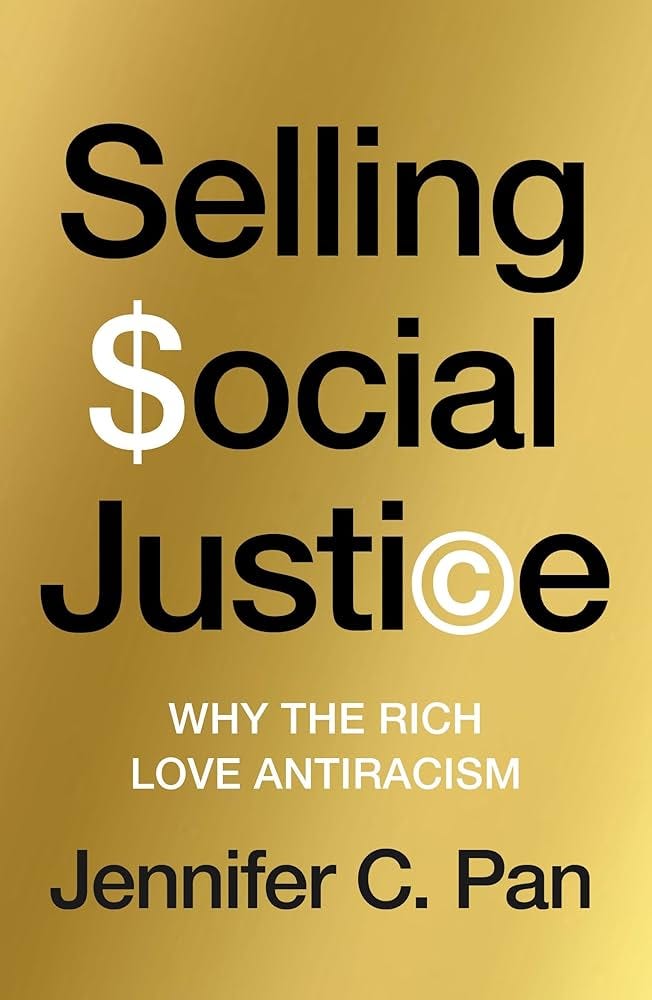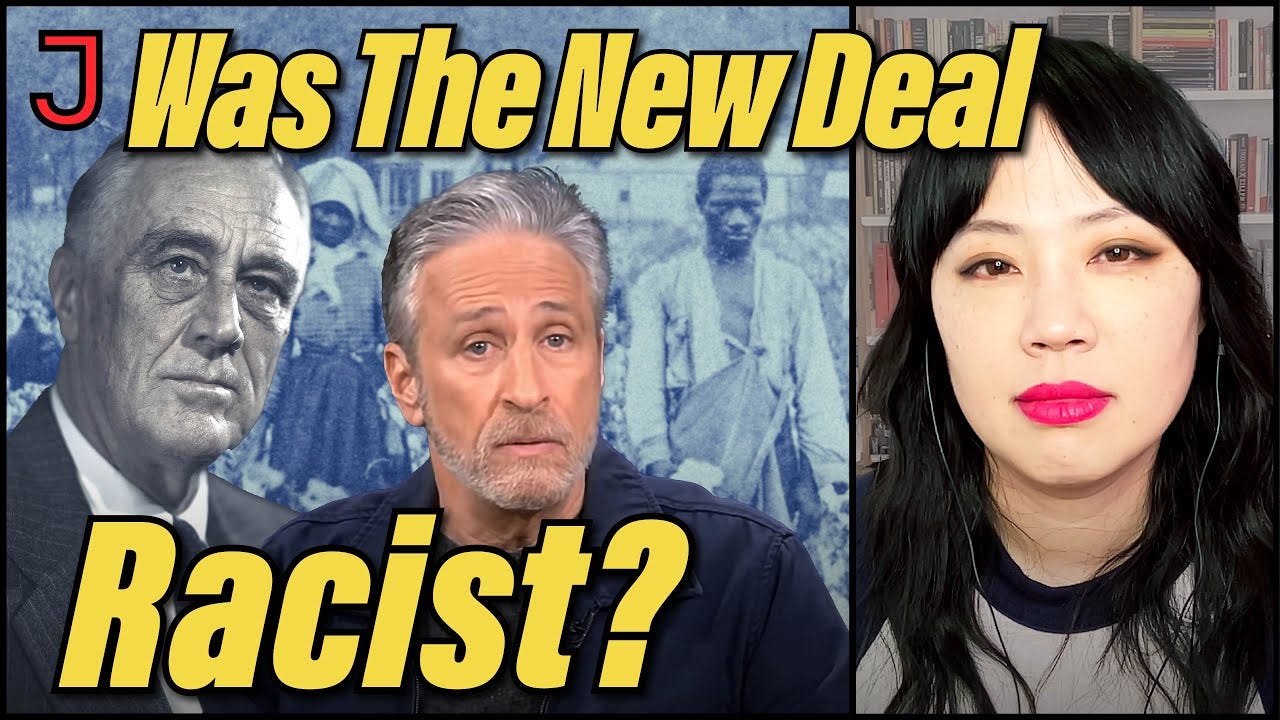Welcome to Doomscroll. My guest is
, a writer whose work has appeared in the Nation, the Atlantic, Dissent, and Damage Magazine. She was formerly a host of the Jacobin Show and a staff writer at the New Republic. She is the author of Selling Social Justice — out today from Verso Books.People intuitively know that woke is a form of elite politics. They reject it on the basis of anti-elite sentiment. But often they do not know its material effects or how these policies further entrench inequality. The rich love anti-racism because it keeps them rich. This episode explains why.
First, lets start with a definition; “Woke” is a preference for representational diversity, among elite sectors of society, whose language and policies mask an asymmetry of resources. These ideas are particularly influential within institutional settings and affluent cultural spheres. Wokeness prioritizes equal representation at the top while maintaining steep inequality below.
As we discuss in this week’s episode, between 2020 and 2022; “According to an estimate by the consulting firm McKinsey, corporations and the financial sector together poured a staggering $340 billion into racial equity measures”. For comparison, that’s over 10x the annual budget of the NLRB, the National Labor Relations Board, that operates on a mere $320 million to oversee labor law for every workplace in the United States. Jen Pan explores this further in her recent Substack article: Why the Rich Love Anti Racism.
This episode makes the case that corporate media and Democratic elites have sought to obscure for the last 9 years. Pan defuses many familiar rhetorical tricks and paints a clear picture of American inequality. Fair warning, this conversation may break certain taboos and bad ideas that you don’t yet know you have.
In recent years, we have seen the rise of what Pan calls “disparity ideology”; a hyper-fixation on the unequal outcomes between racialized groups. Liberal policy makers then use these disparity statistics to design means-tested or race-targeted policies that inevitably make the root problems worse.
In particular, take note of the US vs EU life expectancy comparison around the 4 minute mark. (Keep this in mind when you hear about other unfamiliar topics later on.) Much of the “progressive politics” we see today is a form elite morality that emerged from NGOs and career academics. These things have nothing to do with the boring, patient, deliberate, and definitely not woke, project of social democracy. This episode will overturn many of your built-in assumptions and set you on the correct path. Jen explains why:
The New Deal was not racist.
DEI is not left-wing.
Reparations are cheaper than health care.
The enlightenment was good and we should do more of it.
“The Great Compression” (1940 - 1970)
Jen’s groundbreaking work in 2022 inspired me to start Doomscroll. Having surveyed the breadth and depths of political groups on social media for many years, I can confidently say — this is the only version of the left that can challenge today’s populist right. If this program resonates with you, I encourage you to get Jen’s book: Selling Social Justice.
Before we can reorient left intellectuals back towards a form of mass politics, we first need to demonstrate that a popular audience for these ideas actually exists. If you’re SAS (serious about socialism) in the 21st century, these are the arguments and rhetorical tools that you need to be equipped with.
The full episode is out today:
Jennifer C. Pan: Selling Social Justice | Doomscroll
A few years ago, Jen said to me, “In the academy, its easier to be a communist than a social democrat.” This is strange but true. Today’s elites like to celebrate impractical political projects because those programs don’t really pose a threat. NGOs are happy to have activists “decolonizing Mars” (literally this is someone's art project) instead of raising the corporate tax rate here on Earth. That kind of stuff mostly works to flatter the moral standing of philanthropists.
In this episode, we are speaking to two audiences that rarely overlap; (1) progressive activists who feel passionate about issues of social justice but have not yet encountered this information, and (2) conservative populists who want a bigger slice of the economic pie to go to working people. We may currently think of these groups as being diametrically opposed on the political spectrum — but each of their goals can only be achieved through the same social democratic project.
The political program laid out in this episode is a real confrontation with capital and the stakes are high. Its not the type of politics that cozies up with one group of elites versus another. The liberal media ecosystem is quite literally designed to obscure and suppress the clarity of Jen’s argument. If you have a friend who might benefit from hearing this material clearly and patiently explained, I encourage you to share this episode:
If your curious about the strategy and backstory of Doomscroll, everything you need to know is described in this piece:
Paid supporters can also watch this week’s bonus episode. Jen and I breakdown these topics further and speak candidly about our frustration with elite institutions. I also share one of the more ridiculous political horseshoe stories from my social media research:











my goodness YOU did great on this one Josh!!!! Great interview….look forward to reading the book and then continuing on with my work here on all this stuff….going to share this with Alison who is the head of DEI at my job (Costco) that i’ve been talking with quite a bit over the last several months about this kind of stuff….
will report back
Verso made her the ugliest book cover known to man.